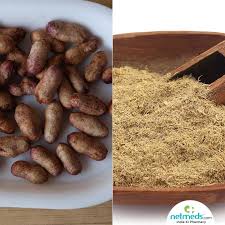How to Balance Your Body and Mind with Ayurveda
Achieving a balanced body and mind is the foundation of good health, and Ayurveda offers time-tested methods to restore harmony within. By addressing the unique constitution of your body (Prakriti), Ayurveda focuses on balancing the three doshas: Vata, Pitta, and Kapha. In this article, we will explore Ayurvedic practices and natural remedies that help restore mental clarity, physical vitality, and emotional well-being. Discover how integrating Ayurveda into your daily life can lead to a healthier, more balanced you.
Long Description
1. Understanding Ayurveda: The Science of Balance
Ayurveda, the ancient Indian system of medicine, emphasizes balance in all aspects of life—physical, mental, and emotional. According to Ayurveda, every person has a unique constitution, known as Prakriti, which is determined by the balance of three doshas: Vata (air and space), Pitta (fire and water), and Kapha (earth and water). When these doshas are in balance, the body and mind are in a state of health. When out of balance, they can lead to physical or mental health issues.
2. The Importance of Balancing the Doshas
Each dosha plays a vital role in your overall well-being, and an imbalance in any of the doshas can result in physical or mental discomfort.
- Vata imbalance: Often manifests as anxiety, stress, or physical symptoms like dry skin and irregular digestion.
- Pitta imbalance: Leads to irritability, anger, and inflammation-related issues.
- Kapha imbalance: Can result in lethargy, weight gain, or depression.
3. Ayurvedic Practices for Balancing the Body and Mind
-
Diet and Nutrition
In Ayurveda, your diet plays a crucial role in maintaining balance. Eating according to your dosha can help restore harmony in both the body and mind. For instance:- Vata types benefit from warm, moist, and grounding foods such as soups, stews, and root vegetables.
- Pitta types should focus on cool, soothing foods like cucumbers, mint, and coconut.
- Kapha types thrive on light, stimulating foods like leafy greens, spices, and legumes.
-
Herbs and Natural Remedies
Ayurveda has a wide range of herbs that can be used to balance the doshas and promote well-being. Some examples include:- Ashwagandha: Known for reducing stress and balancing the nervous system, making it great for Vata imbalance.
- Brahmi: An herb that enhances mental clarity and focus, supporting Pitta balance.
- Turmeric: A powerful anti-inflammatory herb that promotes general health and is helpful for Kapha imbalances.
-
Meditation and Mindfulness
Meditation is one of the most powerful Ayurvedic practices for balancing the mind. Regular meditation helps reduce stress, improve concentration, and bring clarity. Techniques such as Pranayama (breathing exercises) and mindfulness can calm the nervous system, leading to mental peace and emotional balance. -
Yoga for Body and Mind Harmony
Yoga is an integral part of Ayurveda, as it helps harmonize the body and mind. Specific yoga poses (Asanas) are designed to balance each dosha:- Vata types benefit from grounding, slow-paced yoga like Hatha and Yin.
- Pitta types enjoy calming poses such as Child’s Pose and Seated Forward Fold to cool their body and mind.
- Kapha types benefit from more vigorous, energizing yoga practices like Vinyasa or Power Yoga.
4. Daily Ayurvedic Practices for Balance
In Ayurveda, daily rituals, known as Dinacharya, are important for maintaining balance and promoting long-term well-being. Some key practices include:
- Oil Massage (Abhyanga): Regular self-massage with warm, herbal oils helps nourish the skin, calm the nervous system, and balance the doshas.
- Tongue Scraping: A simple morning practice that removes toxins from the tongue, improving digestion and overall health.
- Oil Pulling: A detoxifying practice that involves swishing oil in your mouth to cleanse the mouth and improve oral health.
5. Ayurvedic Lifestyle Tips for Mental Clarity and Physical Vitality
- Adequate Rest: Sleep is essential for balancing the body and mind. Ayurveda recommends going to bed early and waking up early to maintain your circadian rhythm.
- Hydration: Drink plenty of room temperature or warm water throughout the day to stay hydrated and support digestion.
- Stress Management: Regularly engage in relaxation practices like deep breathing, mindfulness, or time in nature to reduce stress and mental clutter.













